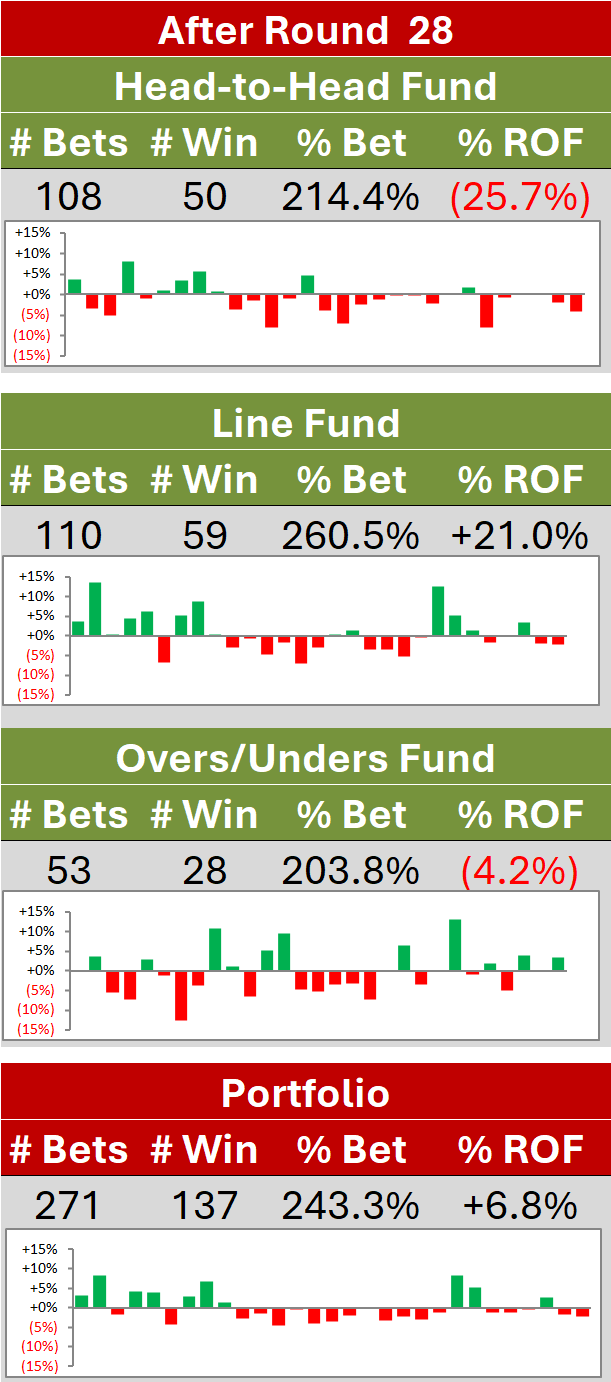Line Betting : A Codicil
/While contemplating the result from an earlier blog, which was that home teams had higher handicap-adjusted margins and won at a rate significantly higher than 50% on line betting - virtually regardless of the start they were giving or receiving - I wondered if the source of this anomaly might be that the bookie gives home teams a slightly better deal in setting line margins.
Read More
